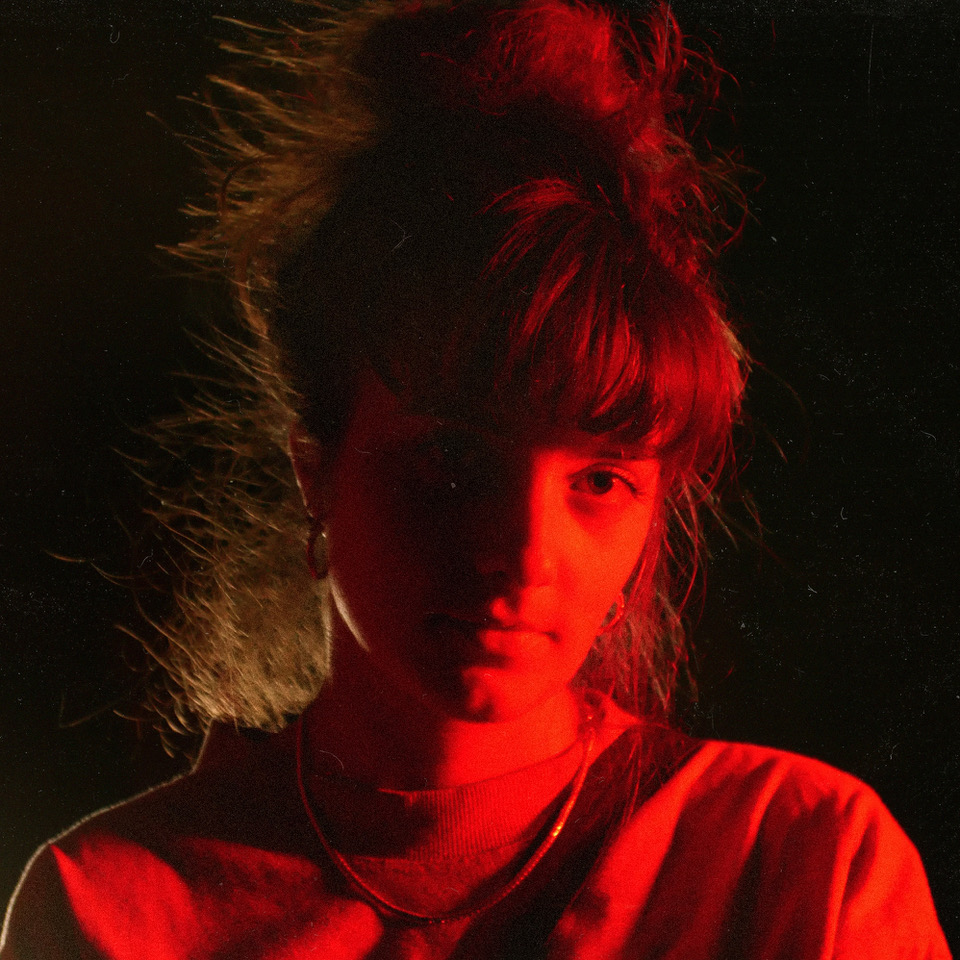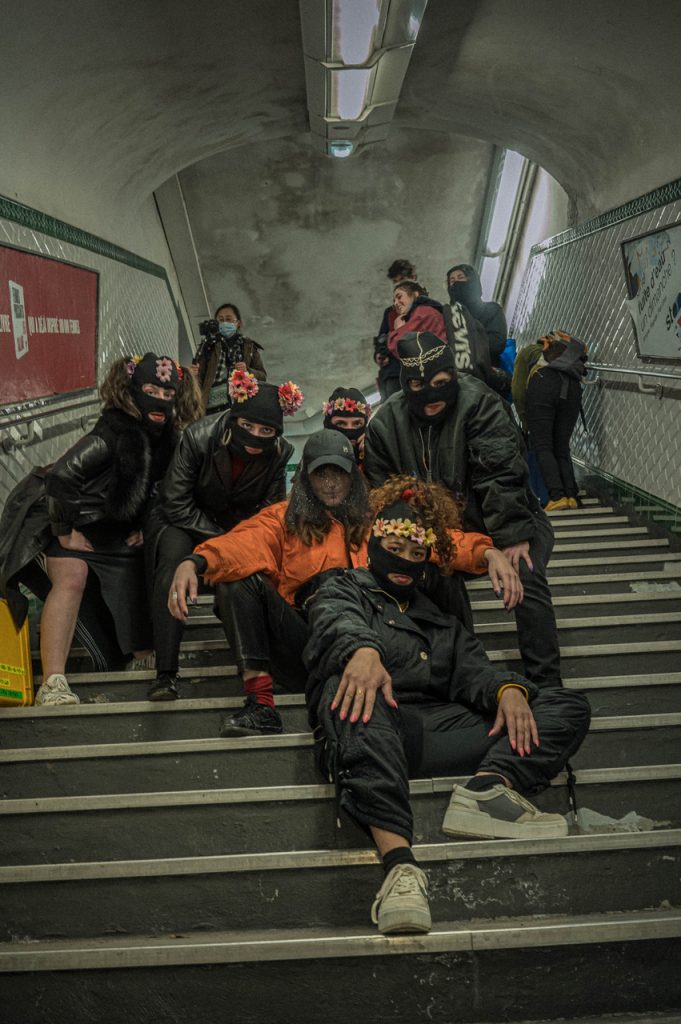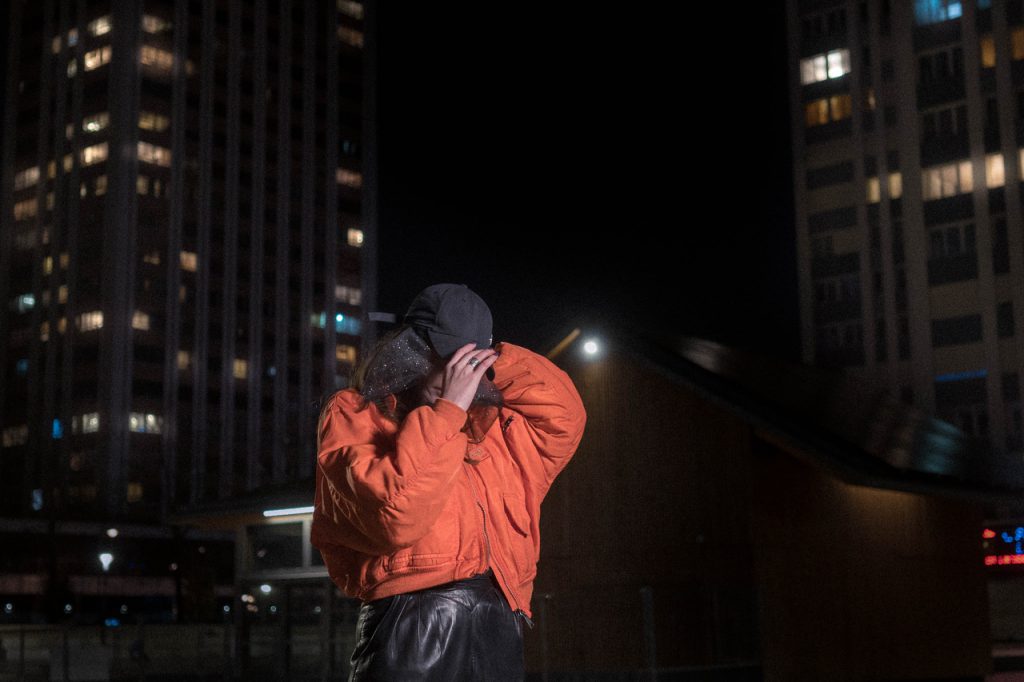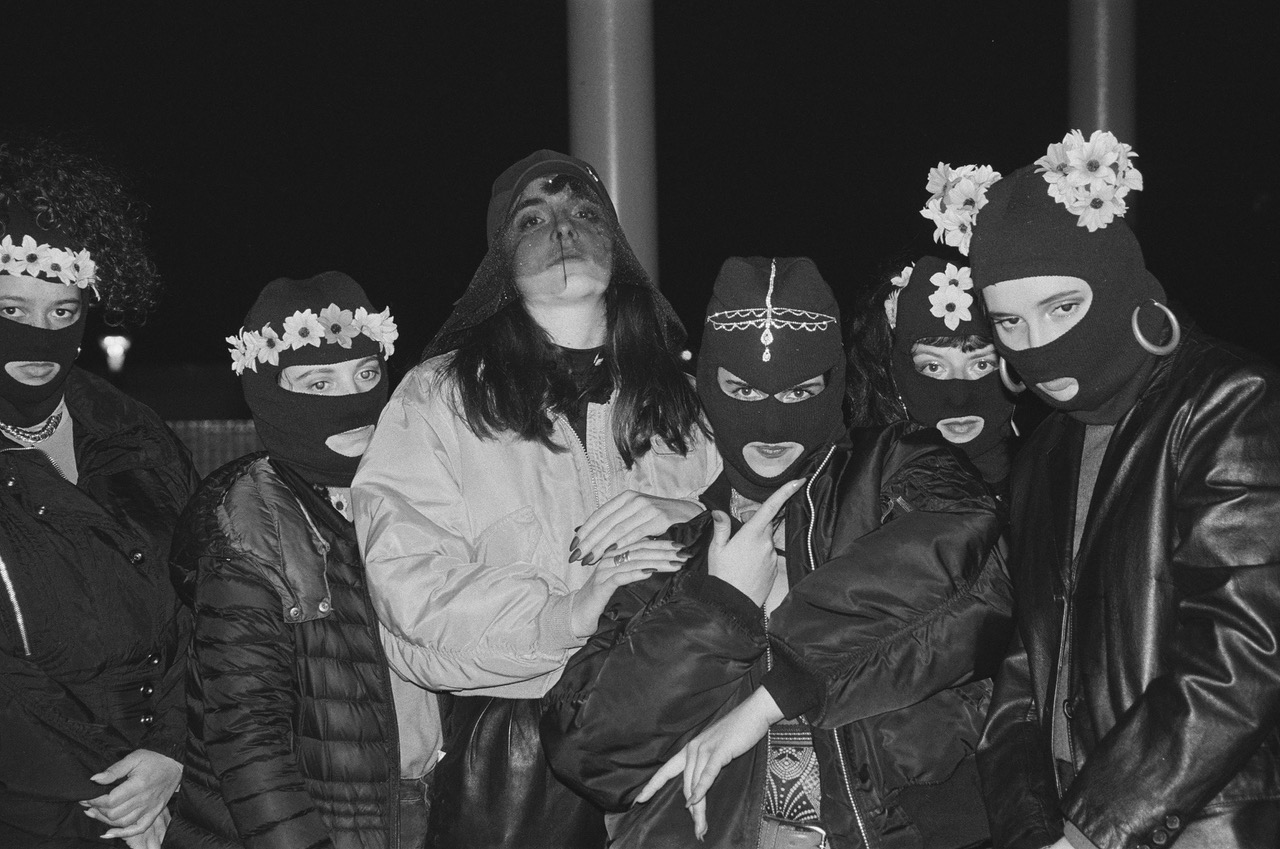Cover picture: ©Nouracmt
The last thing that blew our mind is called Lylice! Originally from Seine-Saint-Denis, the rapper has just released Farouche, a 5-trackEP of impressive quality as her first project! Without further ado, we ask her all the questions we have in mind looking at the clip of “Terminus”. | By Polka B. / Trad. Chris P.

How did you start rapping?
Lylice : I started rap when I was 16. I am originally from Montreuil and I lived in Marseille for a while. I was surrounded by friends who were rapping. If you didn’t participate, you would get bored pretty quickly! We were spitting out our verses when we went out on the street or at a friend’s house … It was really instinctive, a little childish even. I discovered the studio much later. It was from the moment on that I tried to work on something more successful.
Watching your first clip “28th day” (released in 2017), we thought to ourselves that you had improved a lot, in terms of lyrics, flow and aesthetics. How did you work during these 4 years?
« 28th day » was clearly my ‘Marseille’ period! I see it as the starting point. I finished this clip pretty quickly because it’s essential to have something to show, especially at the beginning. I started wanting to release something more concrete, a little over a year ago. I started working on my writing again. This makes sense considering that rap lyrics touched me particularly when I was a teenager (Sinik, Diam’s…). I started listening to much more politicized stuff as I got older (Casey, Anfalsh …). It was this ‘school’ that motivated me to write. Lately I’ve opened up to more current styles of rap: from the UK drill to Josman, via Little Simz.
Within the so-called “politicized” rap, there weren’t many artists who dared to sing at the time. Today, it feels like that period is over with melodies present in just about every kind of French rap. What do you think ?
Clearly ! It’s a great pleasure. Personally, I started rapping before I became a militant. So I never forced my rap to go that way. I try to do it as naturally as possible. It’s important to let go, to have fun musically. After that, we must not forget the content. There may be a risk in over-aestheticizing a political statement … It’s all about balance.
This is why I talked to you about your evolution. 4 years ago, we felt that you weren’t completely letting yourself go. Which had nothing to do with your last song “Terminus” where you seem very comfortable with a sound that corresponds to the rap norms of the moment … I am also thinking of the production of your song “Poz” loaded with influences from UK drill music. What made you clock?

First of all, it’s good to hear that, because I’ve always wanted to combine the two! It’s not because I do “conscious rap” (in biiig quotes) that I have to rap on old-fashioned, instrumental boom-bap! At the beginning I was divided because I listened to a lot of current artists, but for me, I was afraid to lose something regarding the lyrics.
The fun of “28ème jour” was to throw a big ego-trip as if I were a guy. I realized that it was really complicated to do that in France. Rappers like Cardi B drops some very direct stuff, but it’s in the context of the States… Here, it is shocking for everyone. I still want to do angry stuff.
With time, I discovered that I could do it with the instrumental music that I like and rapping the way I want.
How was the collaboration with KØHM (one of the beatmakers of the project, NDLR). Did he encourage you to take this direction?
He gave me a lot on a musical level. He is from Montreuil and he worked in the Exopoq collective (Tengo John, Big Budha Cheez…). He has very ‘square’ working methods and we quickly developed a relationship of trust. It helped me a lot to evolve in this context because he created his own studio. He made three productions on the EP and he also took care of the mix and the mastering. I am very grateful for what he did on Farouche. Usually, I don’t like to work in a studio. I didn’t feel at ease… I didn’t dare to sing or shout. With him, I felt comfortable. We were really into it and I didn’t feel judged.
Why did you call this EP “Farouche“? Did you already have a clear idea of the project’s direction when you started recording?
I see it as a presentation of what I can do, a bit like a business card. “Farouche” (“Fierce”) suits me, especially in rap. I’m not an outgoing person in an obvious way. I’m very suspicious. At the same time, it’s not pure shyness. I can get aggressive in front of people without any problem, and if someone tears me to pieces in life, I can pull out the claws as well!
In “Cardio”, you say: “I’ll fuck you with love”. Do you see this sentence as a summary of what you can do on the mic?
For sure. I think there are some messages that come across better when you sing them or smile while saying them.
We see a bit of this state of mind in the clip “Terminus”. There can be a threatening side to it, and at the same time one feels that the atmosphere is nice and wild…
At the beginning, my friend ‘La Baquela’ wanted to make a clip around witchcraft. The context was rather unusual because we were in the middle of a curfew. We wanted to fuck it all up, to be just among us, girls. The track is dark with deep lyrics. We wanted to emphasize on the contrast. To show that we could tell sad things while dancing with flowers on the head! At the beginning, my friend wanted a single girl breaking everything in the street. But I saw us more as a team, so that’s what we did. We designed the costumes ourselves to highlight the idea of a rite of passage, something a little sectarian where chicks would organize themselves. The shooting was really fun. Especially since Paris is very depressing right now. There’s really nothing going on..
Before the Covid, we saw your name on some concert posters with female rappers like Esthr and Amnez. Can we talk about a new female rap scene these last years in Paris?
It’s true that in 2019 something happened. We have been invited a lot to concerts or to radio shows for girls. In hindsight, even if I didn’t realize it at the time, I developed a kind of “network” with mainly female rappers. It’s both cool and problematic because often these initiatives are organized and run by guys. I remember a concert that was successful. I ran into the guy who organized the event and he was very happy to tell me: “it’s good, it’s the most successful night of all the ones we’ve organized.”
I think we’ll do it again”. In his way of presenting things, I felt that he had done it in a very opportunistic way. I don’t think he was supporting anything except the success of his own events. And at the same time, it’s true that female rap is still underrepresented. So if we’re helping each other out, that’s great. The other thing I have trouble with is the term “female rap”. As if it were a genre of its own when chicks do all kinds of rap: cloud rap, trap, drill, boom-bap…
Just like guys!

What are your plans for the future?
Already, I’m super happy to have something to show to people! I still have a lot of steps to take. This EP made me eager. I want to explore and write songs. I don’t feel ready for a proper album yet. I see myself recording featuring songs to continue evolving while having a little fun!
Could you end by giving us two tracks that you particularly like?
Hard! For English rap, I would say “Frontline” by Pa Salieu! For a French track, I want to say Shay ‘cause I really dig her. Listen to ” Oh oui ” !
